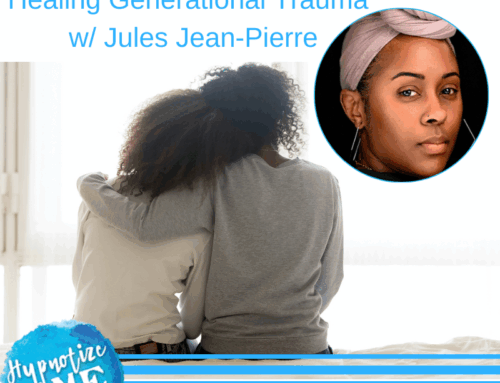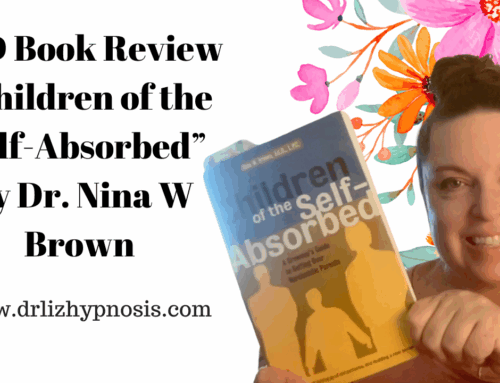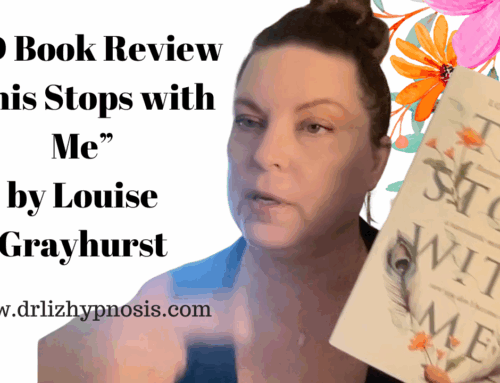NPD Moms The Emotionally Needy Type with Dr Liz
Transcript
Hi Dr. Liz here, and I’m doing a series on narcissistic mothers. So this comes from the book: Will I Ever be Good Enough: Healing the Daughters of Narcissistic Mothers by Carol McBright wonderful book, highly recommend it. Okay. I am a specialist in this area. You could see more about me over at drlizhypnosis.com and I truly love helping adult children work through this because it’s confusing. It’s um, an area that a lot of therapists are not knowledgeable about. And we’re talking about subtle patterns that happen over time, and sometimes people will walk in and, um, if they have a therapist who doesn’t really know about this area, they’ll feel invalidated or like they’re exaggerating or something like that. Or sometimes friends will give them that feedback if they’re not knowledgeable in this area either. But I think that it’s an area that deserves attention, that there’s healing that has to happen that, um, so that, uh, a grown-up person. A grown up daughter of a narcissistic mother or grown-up son of a narcissistic parent can feel good about themselves.
Feel worthy, feel like their life is worth living and has meaning, and also learn how to navigate the relationship with the parent. So it’s not always about cutoff, um, which is an option for some people, but it’s sometimes it’s about, okay, how do I handle them? How to, why? Um, what kind of relationship do I want to have with them? How much contact do I want to have with them? These are all good questions to ask if you have a narcissistic parent. So anyway, let’s jump into this type. Okay. This one is the emotionally needy narcissistic mother. Oh my, that’s what you always hear from emotionally narcissistic mother. Like their needs come first. It is like the child’s needs are non-existent okay. The child does not get emotional support, does not get, um, support in pretty much anything. It’s all about the mother and what the mother needs.
And this is the mother that calls 20 times a day and accuses you of not loving her if you don’t pick up one time. Okay. This is about the mother who like, um, these do often overlap with a psychosomatic mom. I did a video about that type, where it’s like, oh, she’s sick all the time because that neediness gives her something, okay. The dependence gets her something. She will tromp all over her child’s feelings. Okay. The child is not really a factor in her mind. Hers are, her feelings are what’s most important. And the child pretty much gets trained around this and then grows up. And often these daughters will meet very emotionally needy, um, partners as they get older in that, because that feels normal to them. That feels comfortable to them. That’s like, well, what they grew up with, but then they’re left feeling like they don’t matter anymore.
Like only their partner matters, because only their mother mattered. So they get a sense often that something’s off here, that something feels wrong here. Like whenever we’re talking about something, it suddenly becomes about my partner or about my mother. Not about like what I was going through and what I needed or what I do need at the time. So they learn that neglect is normal. Emotional neglect is normal, and it’s not here to tell you. It’s not. You do deserve attention. You do deserve to be listened to and cared for and loved and supported. But chances are you didn’t learn that growing up with a narcissistic mother who was the emotionally needy type. Okay. Let me check if there’s anything else I can, um, give you here.
You often learn not to even discuss your feelings. So often daughters and narcissistic, mothers or fathers are incredibly independent. That’s how they look on the outside because they have learned never to ask for help because it’s not coming okay. Their mothers are not going to give them help. So they often learn not to even talk about their feelings. I know at some point I had taught myself not to cry. Okay. I had to relearn to cry in my thirties or so. I just decided at one point in my twenties, like I’m going to build a wall. I’m not going to cry because it doesn’t matter. Anyway, nobody really cares. I did have a narcissistic mother myself, obviously. Um, so it’s like that type of behavior that you learn of shutting down your own feelings and it’s not good for you. It doesn’t help you connect it.
Doesn’t help you connect with your own children when your own children come along. So often. That’s a point of time when these issues will come up for daughters is when they have their own kids. And they’re like, well, what do I do now? You know, I certainly had that feeling of how do I mother this child and what is normal and was what feels good to me. And you have to get in touch with all of that. And not even, um, sometimes we’ll go to the extreme, like, were you going to be so much better than our neglectful mom? Let’s say, often if someone had a really neglectful mom or dad, that’s what they do they go to the extreme of, I’m going to pay attention to every single one of these child’s needs. Like nothing’s going to escape my notice and that’s an extreme in itself.
So again, it’s about finding balance, okay. About finding what you need in the middle, even when you don’t have children. In relationships, it’s about finding balance between what I need, what my partner needs. He, and sometimes I need more private space. Sometimes I need more connection and it’s really melding those two. Um, sometimes these daughters will end up in, um, as the affair partner. Okay. Because they’re used to getting little bits, right? Little bits of bread along the way, not whole loaf of bread because you know, they didn’t get that when they grew up, they’d got the leftovers. Let’s say mom cooked dinner for herself. Not literally, but mom cooked dinner for herself and the child got the leftovers. So they’re used to having the leftovers of a relationship. They’ll get into, um, affairs with people who are married because they’re used to getting just a tiny little bit, right?
That feels normal to them when really it’s not. And sometimes that does become a crisis for them because they’re like, wait a minute. I deserve a whole and complete relationship, whole and complete attention and love and caring and all of that. So it is, um, uh, area to heal. If that’s your pattern, married men or married, women are married, married nonbinary people. If that’s your pattern, then it’s something to look at. Particularly if you know that you had a narcissistic parent, it can be healed. It can be healed with deeper hypnosis. It can be healed with some talk therapy. It can be navigated. So I want you to know that, okay, you’re not doomed, right? None of these videos, I want you to feel doomed. There’s always help that you can get. And I absolutely love this area. So if you want to know more about me again, you can go see my website. Okay. And I’ll talk to you soon. Peace.

I work with people all over the world. If you want to feel better and have a transformed life, grab your Free Consultation with me to get the deets on working together (the how, the when, the where, and the how much)!
Click to Schedule a Free Consultation
Peace and Health,
Dr. Liz






